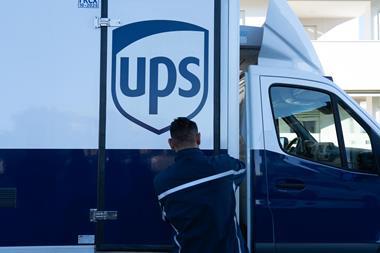In the second article of a new column series from the Airforwarders Association, executive director Brandon Fried outlines outlines how the forwarding industry can get ready for widespread distribution of Covid-19 vaccines in the future.
Throughout history the symbolic white horse has been an indication of hope, prosperity and good things to come. While the ongoing coronavirus pandemic is likely to continue into the foreseeable future, a successful, proven vaccine could be the white horse that brings it to an end.
With at least 165 candidate vaccines in development around the world, the likelihood of a safe and effective contender is real and could receive emergency authorisation soon, but significant challenges presented by Covid-19 are raising questions about the supply chain’s ability to manage distribution. Initially there will likely be a limited supply, followed by a surge in increased production. Since fast and efficient delivery will be essential, our industry must prepare now, before the white horse appears.
The unprecedented slowdown in air travel during the pandemic forced passenger airlines to cancel thousands of flights and ground thousands of planes. Freighter aircraft are in demand, but they are expensive and not readily available to meet growing demand.
Rise of the 'preighter'
Thankfully, several airlines have answered the call by securing boxes to passenger seats and flying underutilised passenger planes without people. While the loads carried cannot be as heavy as those transported on planes specifically built to carry freight, thousands of planes are being redeployed as cargo carriers to distribute critical shipments around the world.
Freight forwarders are arranging many of these cargo-only flights, and in some ways it has streamlined the process. Despite the limitations of cargo types and weights that can be carried by commercial planes, the absence of passengers allows them to operate with the flexibility of a charter arrangement. This means airlines and cargo operators are untethered from a rigid, passenger-driven schedule and they can maximise profits by efficiently loading and unloading to save time and provide a quick turnaround. Even with these advantages however, the number of aircraft available for this type of operation is limited, and the profit brought in from hauling cargo is generally insufficient to cover lost passenger profit.
US forwarders welcome government support for businesses
Airforwarders Association: How to handle the all-cargo screening mandate
Similarly, the reduction in air traffic has not resolved major ground delays at airports. As was the situation before the pandemic, forwarders and their truckers must often wait hours to tender and recover their shipments because ground handling companies are enduring a shortage of available personnel to service these flights quickly.
The scarcity of available aircraft, inconsistent temperature control in idling planes, and delays caused by a shortage of ground handling operators are tremendous obstacles in the way of efficiently distributing the vaccine. Just imagine paying a premium for a chartered plane, only to face delays at the destination that, in many cases, could not only cause inconvenience but place the lives of patients who wait for those critical medical supplies in jeopardy. The logistical expertise of freight forwarders will be essential in managing these challenges.
Supply chain integrity
Once ready, the vaccine will likely require consistent temperature control throughout the distribution process. Also, more than one vaccine may be available at the same time, each with differing logistical requirements. This concern poses further challenges to the supply chain and its ability to furnish the refrigerated warehousing and all-important last-mile delivery to ensure that essential medicine is delivered intact and at the required temperature.
In the face of these challenges we can expect to see resiliency, flexibility and creativity from every element of the supply chain. As some passenger planes are now used as freighters, others parked could be enlisted to haul the new vaccine. Refrigerated trucks could also be procured not only for transport but to act as temporary warehousing to augment fixed infrastructure during the distribution. Furthermore, pharmaceutical manufacturers should team with temperature packaging experts now so that required containers are readily available, capable of keeping the vaccine fresh for several days.
It's time to prepare
Passenger airlines need to prepare now and governments must be willing to help. Many nations, including the United States, support civilian air fleet programs that assure access to passenger planes by the government in national emergencies and cases such as this. These initiatives should be ready to fulfil demand, while they devise a plan to subsidise ground handlers at major airports. Planeloads of necessary vaccines cannot take hours or days as pandemic rages and citizens wait for the protective serum. It will be paramount to the success of these operations that federal agencies work closely with industry and offer flexibility and assistance, rather than slow down the effort with significant regulatory hurdles.
We are all hopeful that an approved vaccine is in the near future, and that we can all start to move on and rebuild from the effects of this pandemic. Our industry needs to prepare now so that we are ready for its distribution and not fumble the opportunity when the anticipated white horse as it gallops in.










